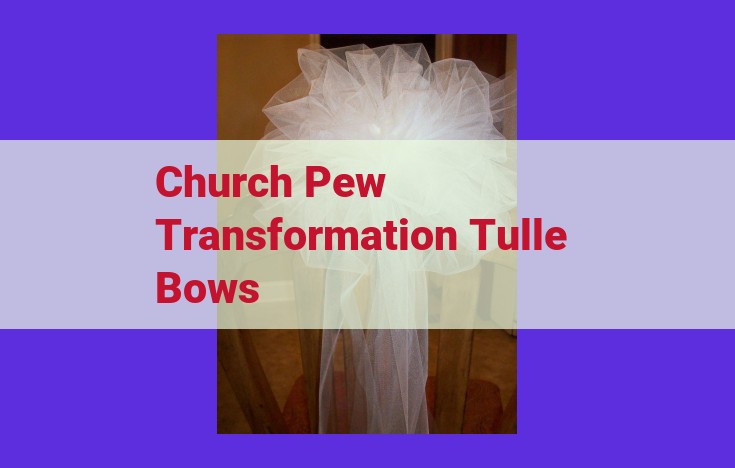Organize your tricky tray event with ease using these comprehensive tips. From choosing a captivating theme to recruiting a dedicated team, our guide covers everything. Create a practical budget, secure generous contributions, and assemble an enticing wish list. Streamline execution with task allocation and maximize attendance through strategic promotion. Enhance revenue with ticket packages and raffles. Track sales and donations for transparency, express gratitude to donors, and enhance relationships for future support.
Choosing a Captivating Event Theme: A Key to Event Success
An unforgettable event begins with a captivating theme that resonates with your target audience. It sets the tone, creates ambiance, and leaves a lasting impression on attendees.
Event planning experts emphasize the importance of understanding your audience and their interests. Consider popular party themes such as Nostalgic Throwbacks, Fantasy Extravaganzas, or Educational Endeavors. A well-chosen theme will engage your guests and make your event stand well above the ordinary.
Remember, the key to a successful theme is creativity and originality. Don’t be afraid to explore unique and personalized concepts that reflect your event’s purpose and message. Let your imagination soar and create a memorable experience that your guests will cherish for years to come.
Crafting a Practical Budget for Your Memorable Event
When planning an event, especially a fundraiser, budgeting is crucial. It sets the foundation for financial success and ensures that every dollar is used wisely. Here are some practical budgeting techniques tailored specifically to events:
Determine Your Objectives
Start by clearly defining your event objectives. Are you aiming to raise a certain amount of money? Cover event expenses? Generate awareness for a cause? Understanding your goals will help you prioritize expenses and allocate funds accordingly.
Estimate Expenses
Create a comprehensive list of all potential expenses, including:
- Venue rental
- Food and beverages
- Equipment and decorations
- Staffing
- Marketing and promotion
- Insurance
Set a Realistic Budget
Once you’ve estimated your expenses, it’s time to set a realistic budget that aligns with your objectives. Consider your target revenue and expenses to determine a feasible spending limit. Don’t be afraid to adjust your budget as needed based on market research or unexpected expenses.
Maximize Revenue
In addition to setting a budget, explore ways to maximize revenue. This could include:
- Selling tickets or event passes
- Offering sponsorships or partnerships
- Running a raffle or silent auction
- Accepting donations
Fundraising Considerations
For fundraising events, the budgeting process is slightly different. Determine your fundraising goal and set a budget that supports that goal. Consider the following:
- Donation drive implementation
- Charity donation channels
- Fundraising wish lists
Tips for Setting a Practical Budget
- Prioritize expenses. Focus on essential costs that directly contribute to your event’s success.
- Negotiate with vendors. Get quotes from multiple vendors and negotiate to secure the best possible deals.
- Seek sponsorship or donations. Reach out to potential sponsors or donors who align with your event’s mission or brand.
- Monitor expenses. Track your spending throughout the planning process to ensure you stay within budget.
- Be flexible. Unexpected expenses may arise, so be prepared to adjust your budget accordingly.
Remember, budgeting is an ongoing process. Regularly review your expenses, track revenue, and make adjustments as needed to ensure you’re on track to achieve your event goals while maximizing its financial success.
Securing Generous Contributions: Explore effective fundraising strategies, donation drive implementation, and charity donation channels to help readers gather valuable donations for their event.
Securing Generous Contributions for Your Event: A Comprehensive Guide
Fundraising is an integral part of many events, and securing generous contributions is crucial to their success. In this blog post, we’ll explore effective fundraising strategies, donation drive implementation, and charity donation channels to help you gather valuable donations for your next event.
Crafting a Clear Fundraising Goal
Before embarking on any fundraising efforts, it’s essential to set a clear and realistic goal. Determine how much funding you need and allocate it to specific areas of the event. This will provide a target to aim for and help you prioritize your fundraising efforts.
Effective Fundraising Strategies
- Online fundraising platforms: Utilize platforms like GoFundMe, Kickstarter, and Facebook Fundraisers to reach a wider audience and accept donations online.
- Donation drives: Organize offline donation drives in local businesses, schools, or community centers. Encourage friends, family, and the community to contribute.
- Raffles and auctions: Host raffles or auctions with attractive prizes, offering guests a chance to win while supporting the cause.
- Corporate sponsorships: Reach out to local businesses or organizations for financial support or in-kind donations.
- Matching gifts: If your event is associated with a charity, explore if they offer matching gift programs, doubling the impact of donations.
Implementing a Donation Drive
- Create a compelling campaign: Develop a clear and concise message about your event and why donations are needed.
- Promote the drive effectively: Use social media, email marketing, and local advertising to spread the word about the donation drive.
- Set up convenient donation options: Make it easy for guests to donate by providing options like online platforms, QR codes, and cash or check donations.
Utilizing Charity Donation Channels
- Partner with a reputable charity: Associate your event with a well-known charity to enhance credibility and attract donors.
- Leverage online donation platforms: Many charities have online platforms that allow you to create fundraising pages and accept donations on their behalf.
- Explore corporate giving programs: Reach out to larger corporations that may offer grants or matching gift programs to support charitable events.
Crafting a Comprehensive Wish List: Ensuring a Diverse Array of Event Offerings
In the vibrant world of event planning, crafting a comprehensive wish list is a key element in creating a memorable and successful gathering. It ensures that your guests have a diverse range of items to bid on, enhancing the excitement and maximizing revenue.
There are various approaches to composing a wish list. Gift registry concepts can be borrowed from the realm of weddings and baby showers. Establish an online or in-person registry where guests can view and select items they would like to contribute. This allows attendees to personalize their involvement while removing the guesswork from gift-giving.
For non-profit organizations, creating a fundraising wish list is essential. Consider the specific needs of your organization and create a list of items that would support your mission. This could include equipment, supplies, or experiences that directly benefit your cause. Clearly communicate the impact of these donations to your guests to evoke their support.
Additionally, consider creating an event wish list that includes items that enhance the overall ambiance and guest experience. This could encompass decorative pieces, entertainment, or unique amenities that add a special touch to your event. By catering to a wide range of interests, you increase the likelihood of attracting a larger audience and generating significant revenue.
A well-crafted wish list sets the stage for a successful and memorable event. It provides guests with the opportunity to participate in a meaningful way while supporting your organization. By following these tips, you can create a comprehensive wish list that caters to your guests’ desires, maximizes revenue, and leaves a lasting impression.
Task Allocation for Seamless Event Execution
Organizing an event can be a daunting task, but proper planning and task allocation can lead to a seamless and successful event. Event planning principles dictate that tasks be categorized and assigned to specific individuals or teams to ensure clarity of roles and accountability.
Mastering Task Management Techniques
Effective task management is crucial for event success. Create a task list outlining all necessary steps and assign each task to the appropriate person. Use a Gantt chart to map out the timeline and dependencies between tasks. This will help you visualize the workflow and identify potential bottlenecks.
Managing Event Logistics
Event logistics involve coordinating all the behind-the-scenes details. Venue management includes booking and preparing the venue, ensuring adequate seating, lighting, and sound. Vendor coordination involves managing vendors for catering, décor, entertainment, and other services. Transportation planning includes arranging for guest transportation if necessary.
Streamlining Operations
To achieve seamless execution, delegate tasks effectively and provide clear instructions to all team members. Communicate regularly to keep everyone informed about progress and changes. Use technology to facilitate communication, task tracking, and document sharing.
Ensuring Accountability
Assign clear roles and responsibilities to each team member to avoid confusion. Establish reporting mechanisms to monitor progress and identify any areas that need attention. Empower your team to make decisions within their areas of responsibility to promote efficiency and adaptability.
By following these principles, you can categorize tasks effectively and streamline event operations. This will ensure a smooth-running event that meets the expectations of both attendees and organizers.
Recruiting and Leading a Dedicated Volunteer Team
Every successful event relies on a dedicated team of volunteers to ensure it runs smoothly and leaves a lasting impression on attendees. Recruiting and managing volunteers effectively is crucial for making your event a resounding success. Here are some time-tested best practices to help you assemble and lead an exceptional volunteer team:
Sub-Heading 1: Effective Volunteer Recruitment
Begin by clearly defining the volunteer roles and responsibilities. Communicate these requirements through various channels such as social media, email campaigns, and local community organizations. Make sure to highlight the event’s purpose and its impact on the community. Emphasize the rewarding experience that volunteers can gain by contributing their time and skills.
Sub-Heading 2: Thorough Screening and Training
Once you have a pool of potential volunteers, conduct thorough screenings to assess their skills, experience, and motivation. This will help you match volunteers to roles that best suit their abilities. Provide comprehensive training to familiarize volunteers with event logistics, safety protocols, and guest relations.
Sub-Heading 3: Clear Communication and Coordination
Establish clear lines of communication with volunteers throughout the planning and execution of the event. Use online platforms or dedicated messaging groups to keep volunteers informed and engaged. Assign leaders to specific teams or tasks to ensure effective coordination and avoid confusion.
Sub-Heading 4: Empowering Volunteers
Empower your volunteers by giving them the authority to make decisions within their assigned roles. Trust their judgment and provide them with the necessary resources to carry out their tasks effectively. Encourage feedback from volunteers to continuously improve the event experience.
Sub-Heading 5: Recognition and Appreciation
Show your gratitude to volunteers for their invaluable contributions. Express appreciation through verbal praise, written thank-you notes, or small tokens of recognition. Celebrate their efforts and highlight their impact on the event’s success.
By following these best practices, you can recruit, train, and lead a dedicated team of volunteers who will contribute to a memorable and impactful event. Their enthusiasm and commitment will create a welcoming atmosphere for attendees and ensure that your event achieves its goals.
Maximizing Attendance Through Strategic Promotion
Organizing a successful event not only requires meticulous planning but also effective marketing strategies to draw a substantial crowd and boost revenue. Strategic promotion is the key to reaching your target audience, generating buzz, and ultimately driving attendance.
Event Marketing Mastery
Harness the power of event marketing techniques to captivate your target market. Utilize social media platforms to create dedicated event pages, share updates, and engage with potential attendees. Leverage email marketing campaigns to nurture relationships, send targeted invitations, and keep your audience informed. Don’t forget the power of traditional methods like print advertising in local newspapers and magazines.
Advertising Avenues
Identify advertising channels that align with your target audience’s interests. Consider online advertising on platforms like Google AdWords and Facebook Ads to reach a wider audience. Explore offline advertising options such as billboards in high-traffic areas or radio spots to create local awareness. Collaborate with influencers within your industry to promote your event and reach a wider demographic.
Target Audience Identification
Understanding your target audience is crucial for effective promotion. Define their demographics, interests, and online behavior. Consider their motivations for attending the event and tailor your messaging accordingly. Use market research and customer segmentation to identify the most promising target groups.
By implementing these strategic promotion tactics, you can maximize attendance, increase revenue, and create a memorable event that resonates with your target audience. Remember, successful event promotion is all about reaching the right people with the right message at the right time.
Simplifying Ticket Sales with Online Platforms: A Guide to Streamlining Event Ticketing
In the fast-paced world of event planning, finding ways to streamline operations and enhance the guest experience is paramount. Online ticket sales platforms offer an unparalleled solution to both challenges, revolutionizing the way events are ticketed and attended.
With these platforms, event organizers can effortlessly set up their events, manage ticket sales, and provide convenience to attendees like never before. Event ticketing services enable organizers to create custom ticket pages, set ticket prices and availability, and track sales in real-time. Ticket booking systems, on the other hand, provide a secure and user-friendly interface for guests to purchase tickets, select their seats, and manage their orders.
The benefits of using online platforms extend well beyond convenience and efficiency. They offer:
- Time Savings: Automating ticket sales frees up organizers to focus on other aspects of their event.
- Reduced Costs: Eliminating the need for physical ticket printing and distribution saves on resources and labor.
- Increased Reach: Online platforms allow events to be promoted to a wider audience, increasing ticket sales potential.
- Enhanced Security: Secure payment processing and fraud detection systems protect attendees and organizers from fraudulent activities.
To choose the right online ticket sales platform, consider factors such as the size of your event, the features you need, and the cost. Research different providers to find the one that best meets your specific requirements.
By utilizing online ticket sales platforms, event organizers can simplify ticket sales, enhance the guest experience, and maximize their revenue potential. Whether you’re planning a large-scale festival or a small gathering, these platforms are essential for modern event management.
Boosting Revenue with Ticket Packages: Maximizing Profits for Your Event
In the realm of event planning, maximizing revenue is paramount. One effective strategy to achieve this is through the strategic implementation of ticket packages. These packages offer a variety of options tailored to different target groups, encouraging ticket purchases and increasing event income.
VIP Treatment: Creating an Unforgettable Experience
Consider offering VIP ticket packages that provide exclusive perks and an enhanced event experience. These packages can include access to premium seating, private lounges, meet-and-greets with performers or speakers, and complimentary food and beverages. By creating a sense of exclusivity and luxury, VIP packages cater to those willing to pay more for an unforgettable event.
Early Bird Discounts: Rewarding Proactive Attendees
Offer early bird discounts to incentivize attendees to purchase tickets in advance. These discounts create a sense of urgency and entice potential guests to commit early, ensuring a steady stream of revenue. Early bird discounts can be tiered, with deeper discounts for those who purchase further in advance.
Group Discounts: Encouraging Camaraderie and Attendance
Group discounts encourage larger groups to attend your event. By offering a reduced price for groups of a certain size, you foster a sense of community and camaraderie. This strategy is particularly effective for events that cater to families, social organizations, or corporate teams.
In conclusion, implementing these ticket package strategies can significantly boost revenue for your event. By providing exclusive VIP experiences, rewarding early purchases, and offering group discounts, you can cater to a wider range of attendees while maximizing income. Embrace these strategies and witness the positive impact on your event’s financial success.
Enhancing Excitement with Raffles: A Secret Ingredient for Fundraising Success
Raffles are a time-honored tradition that can add an extra layer of excitement to any fundraising event, whether it’s _a gala dinner, a charity run, or a local community bazaar. By creating a buzz and offering the chance to win enticing prizes, raffles not only help drive up donations but also engage attendees and enhance the overall event experience.
Raffle Ticket Distribution: The Art of Reaching Your Audience
The key to successful raffle sales lies in distributing tickets effectively. Consider selling tickets at the event venue, but also explore online platforms and social media marketing to reach a wider audience. Set up dedicated ticket booths and engage volunteers or staff to enthusiastically promote the raffle and answer any questions potential buyers may have. Offer incentives for early purchases or multiple ticket purchases to boost sales and create a sense of urgency.
Raffle Fundraiser Ideas: Creative Concepts to Captivate Donors
Beyond the classic raffle format, explore creative ideas to make your raffle stand out. Consider themed raffles aligned with the event’s purpose, such as offering _sports memorabilia for a charity sporting event or gourmet food baskets for a culinary fundraiser. Host silent auctions alongside the raffle to offer a wider range of items and cater to different donor preferences. Partner with local businesses to offer exclusive experiences or products as prizes, adding prestige and value to the raffle.
Prize Raffle Management: Ensuring Transparency and Fairness
Transparency and fairness are paramount in raffle management. Clearly display all raffle rules and disclose the total number of tickets sold. Use a random drawing or independent witness to select the winning tickets to ensure impartiality. Keep accurate records of all ticket sales and prize distributions, and promptly notify winners and fulfill prizes as promised. This attention to detail fosters trust and encourages participation in future events.
By incorporating raffles into your fundraising event, you can generate excitement, drive up donations, and create a memorable experience for attendees. With careful planning and execution, raffles can be a valuable tool to achieve your fundraising goals and leave a lasting impression on your supporters.
Tracking Sales and Donations for Transparency
In the realm of event planning, transparency is paramount. meticulous tracking of sales and donations is essential to ensure accurate reporting for donors and attendees alike. This transparency fosters trust, encourages future support, and lays the groundwork for successful endeavors.
Event Tracking Systems
Event tracking systems provide a centralized hub for monitoring all aspects of your event. From ticket sales to raffle entries, these systems capture and organize crucial data, enabling you to track progress in real-time. By leveraging advanced analytics, you can identify trends, pinpoint areas for improvement, and optimize your fundraising strategy.
Donation Tracking Methods
Donation tracking methods are tailored specifically to nonprofit organizations. These tools allow you to record and manage charitable contributions, ensuring that every dollar is accounted for. By providing donors with access to transparent reporting, you build confidence and demonstrate the impact of their generosity.
Fundraising Tracking Solutions
Fundraising tracking solutions go beyond mere donation tracking. They provide a holistic view of your fundraising campaign, integrating ticket sales, merchandise sales, and other revenue streams. With these solutions, you can track progress, identify top performers, and allocate resources where they are needed most.
By implementing robust tracking systems, you empower donors with knowledge of how their contributions are being used. This transparency fosters trust, strengthens relationships, and creates a solid foundation for ongoing support. In the world of event planning, transparency is not just a best practice; it’s the key to building lasting connections and ensuring the success of your endeavors.
Expressing Gratitude and Nurturing Relationships for Long-Term Success
Laying the Foundation for Lasting Support
The success of any event lies not only in the moment itself but also in the relationships forged beyond it. Donor appreciation and event follow-up are essential for fostering long-term support, ensuring that your event’s impact reverberates far into the future.
Personalized Expressions of Gratitude
Beyond monetary contributions, taking the time to express sincere gratitude to each donor leaves a lasting impression. Handwritten thank-you notes or personalized emails convey your deep appreciation and demonstrate that each contribution is valued. Share the impact of their support, detailing how it will directly benefit the cause or organization.
Sustained Engagement
Events often provide a unique opportunity for connection and engagement. Stay connected with attendees through regular updates, newsletters, or social media interactions. Showcase the positive outcomes of their support and highlight upcoming fundraising initiatives to keep them informed and involved.
Exceptional Customer Service
Exceptional customer service is paramount in fostering positive relationships. Respond promptly to inquiries, address concerns efficiently, and go the extra mile to ensure a seamless experience. By demonstrating care and respect for attendees and donors, you instill trust and encourage future participation.
Building a Community of Supporters
Nurture a sense of community among donors and attendees. Host exclusive gatherings, create online discussion forums, or organize volunteer opportunities to foster deeper connections. By providing opportunities for collaboration and sharing, you create a supportive and engaged network.
Recognition and Appreciation
Publicly acknowledge the significant contributions of donors and volunteers. Feature their names on event materials, recognize them in speeches, or create a special donor wall. By showing your appreciation, you honor their generosity and inspire others to join the cause.
By implementing these strategies, you not only express gratitude but also lay the groundwork for lasting relationships. Donors and attendees will feel valued, connected, and motivated to continue supporting your mission, ensuring the long-term success of your fundraising efforts.




